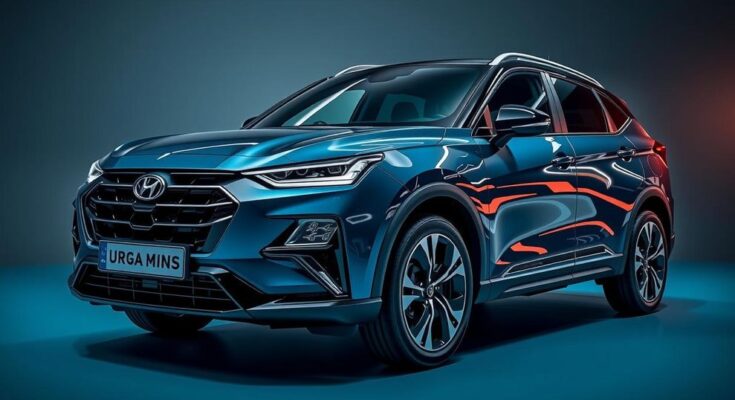Alfredo Altavilla, former Fiat Chrysler executive and current advisor to BYD, highlighted the significant impact of Chinese electric vehicles in Europe, describing a looming transformation in the market characterized by rapid production and innovation at companies like BYD. He noted that despite the speed of development, BYD maintains high quality standards, and the company’s commitment to becoming a local manufacturer further distinguishes it from its peers. The resulting competition evokes a sense of urgency among traditional European manufacturers.
In recent discussions regarding the significance of Chinese automobiles in Europe, Alfredo Altavilla, a former high-ranking executive at Fiat Chrysler and current advisor to BYD, expressed profound insights into the imminent changes within the automotive landscape. He articulated that there is a monumental transformation on the horizon, describing it as an earthquake whose magnitude remains uncertain. With extensive experience having transitioned from traditional automotive sectors to the innovative environment of BYD, Altavilla noted the unparalleled speed at which BYD develops vehicles, completing a car from concept to production in less than 18 months, a stark contrast to the lengthy time frames experienced in Western automobile production. Upon inquiring about the methodologies employed by BYD that enable such production efficiency, Altavilla addressed the company’s dedication to technological innovation rather than risky shortcuts. He emphasized that BYD’s connection with high-tech industries, evidenced by its role as a key supplier for Apple, fosters an environment conducive to rapid innovation. He further asserted that the perceived quality of BYD’s vehicles rivals that of long-established manufacturers, attributed to the expertise of their design team directed by Wolfgang Egger, a notable figure in automotive design. Altavilla highlighted BYD’s strategy to establish itself as a credible European manufacturer, differentiating it from other Chinese Original Equipment Manufacturers (OEMs) aiming to maintain their Chinese identity while merely assembling cars in Europe. This proactive stance not only provides operational advantages, such as avoiding tariffs, but also enhances the company’s local integration. As Altavilla set out to recruit talent for BYD, he reported an overwhelming influx of applications from various manufacturers, indicating a notable trend in the industry: many professionals are seeking opportunities beyond their current roles due to increasing job insecurity within traditional European firms. In discussing the market performance of other Chinese brands, he posed questions on how brands like MG have quickly captured significant market shares, attributing their success to the hesitance of established German manufacturers, who are often bogged down by excessive deliberation rather than decisive action.
The rising presence of Chinese automobile manufacturers in the European market, particularly electric vehicle (EV) makers such as BYD, is reshaping the competitive landscape. Traditional automotive companies are facing mounting pressure to innovate and adapt, particularly in response to the rapid advancements and production capabilities demonstrated by their Chinese counterparts. Former executives like Alfredo Altavilla provide insight into these dynamics as they navigate this transformation, emphasizing the speed and quality improvements that characterize Chinese vehicle production.
The discourse surrounding the significance of Chinese cars in Europe reveals a shift that could redefine the automotive industry as we know it. Experts like Alfredo Altavilla point to the swift development cycles and innovative methodologies employed by companies like BYD, which challenge traditional manufacturers’ slow responses. The influx of applications from skilled workers seeking new opportunities underscores the shifting employment landscape driven by the perceived stability and potential of emerging Chinese automotive players. As the industry evolves, the traditional giants must adapt or risk being overshadowed by this new wave of competition.
Original Source: www.topgear.com




